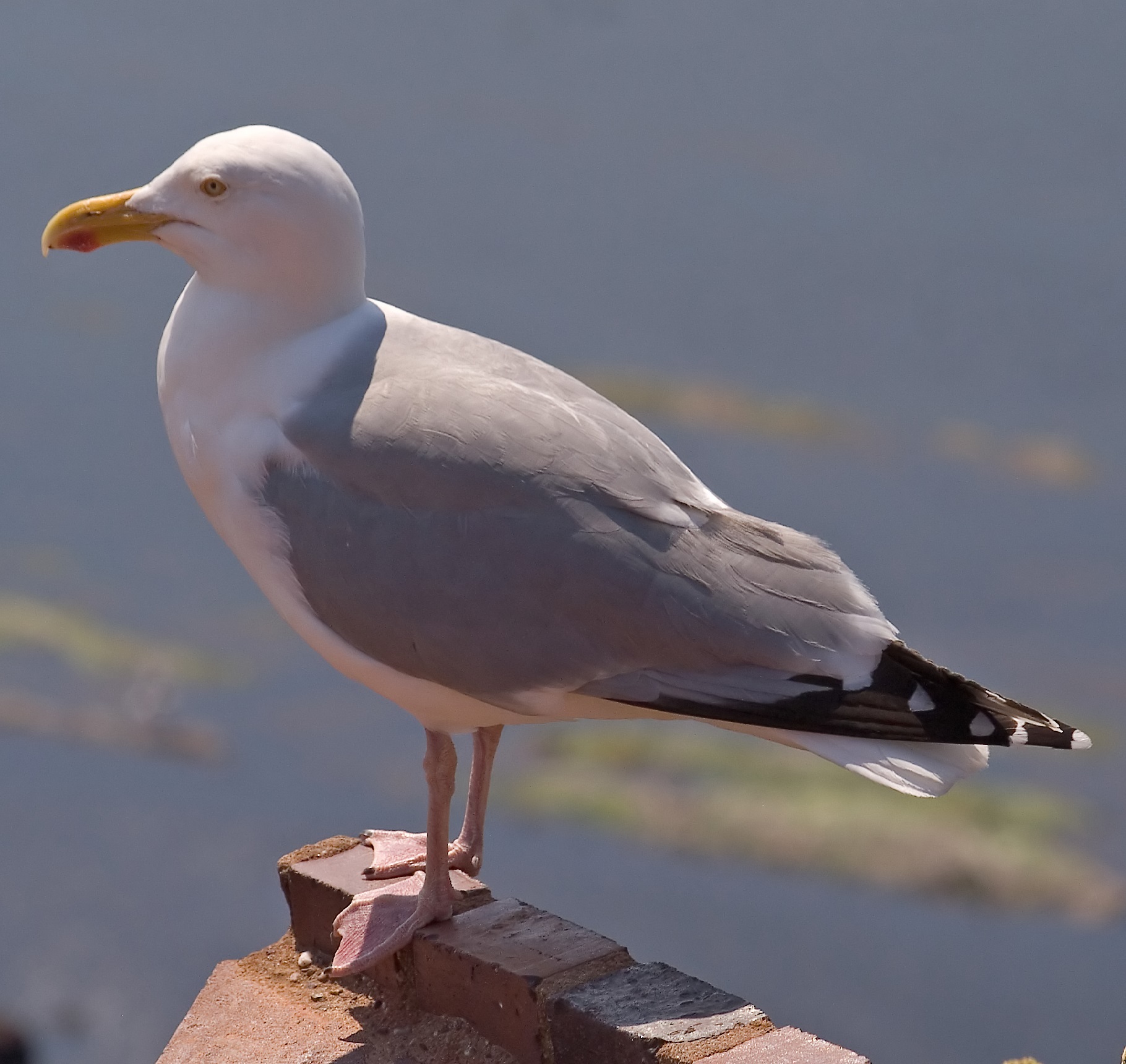Aithyia (1st edition)
αἴθυια

A poetic word, of uncertain or indefinite meaning. Probably a large Gull e.g. Larus marinus, the Black-backed Gull (Sundevall), or Larus argentatus, the Herring Gull (Krüper), the former being rare in Greece. Netolicka's hypothesis of the Merganser and that of Groshans that it was a Diver or Grebe do not tally with Aristotle Historia Animalium 5.9, 542b ἡ δʼ αἴθυια καὶ οἱ λάροι τίκτουσι μέν ἐν ταῖς περὶ θάλατταν πέτραις, τὸ μέν πλῆθος δύο ἢ τρία· ἀλλʼ ὁ μέν λάρος τοῦ θέρους, ἡ δʼ αἴθυια ἀρχομένου τοῦ ἔαρος "The aithyia, or diver, and the larus, or gull, lay their eggs on rocks bordering on the sea, two or three at a time; but the gull lays in the summer, and the diver at the beginning of spring, just after the winter solstice, and it broods over its eggs as birds do in general. And neither of these birds resorts to a hiding-place." Schneider's identification with the Skua, Lestris Parasiticus fails inasmuch as the latter does not dive (vide Buchholz, op.cit. pp. 112, 113) nor does it breed in the Mediterranean. The Herring Gull is abundant during the winter and breeds about the middle of April: the Common Tern (Sterna anglica) lays about the same time as the Herring gull (Krüper) but in the lagoons and not on the cliffs.
Odyssey 5. 337-353 τὸν δὲ ἴδεν Κάδμου θυγάτηρ, καλλίσφυρος Ἰνώ Λευκοθέη, ἣ πρὶν μὲν ἔην βροτὸς αὐδήεσσα, νῦν δ᾽ ἁλὸς ἐν πελάγεσσι θεῶν ἒξ ἔμμορε τιμῆς. ἥ ῥ᾽ Ὀδυσῆ᾽ ἐλέησεν ἀλώμενον, ἄλγε᾽ ἔχοντα, αἰθυίῃ δ᾽ ἐικυῖα ποτῇ ἀνεδύσετο λίμνης. "And Ino the daughter of Cadmus of the fair ankles saw him, she who used to speak with the voice of a mortal, and was now receiving the honor of the gods in the depths of the sea. She took pity on Odysseus, wandering and suffering evils, and like an aithyia she rose from the depths on the wing". Aristotle, Historia Animalium, 5.9. "The aithyia, or diver, and the larus, or gull, lay their eggs on rocks bordering on the sea, two or three at a time; but the gull lays in the summer, and the diver at the beginning of spring, just after the winter solstice, and it broods over its eggs as birds do in general. And neither of these birds resorts to a hiding-place." (ἡ δʼ αἴθυια καὶ οἱ λάροι τίκτουσι μέν ἐν ταῖς περὶ θάλατταν πέτραις, τὸ μέν πλῆθος δύο ἢ τρία· ἀλλʼ ὁ μέν λάρος τοῦ θέρους, ἡ δʼ αἴθυια ἀρχομένου τοῦ ἔαρος...). See the Mergus, Pliny, Naturalis Historia, 10. 48. Also the same comment by Pliny at 1. 487, 8.3. Αrrian, Periplus, 89 names it with λάροι "the larus" and κορῶναι αἱ θαλάσσιαι "sea-crows". Hesychius, Lexicon renders aἴθυιαι by εἰνάλιαι κορῶναι "crows that live in the sea". Frequent in the Greek Anthology, e.g. 6.23, 7.212 (Mnasalcas), 7.285, ὄλετο γὰρ σὺν νηὶ, τὰ δʼ ὁστέα ποῦ ποτʼ ἐκείνου πύθεται, αἰθυίαις γνωστὰ μόναις ἐνέπειν, "He perished with his ship, and no one has found out where his bones lie, only the aithyiai can tell", 7.374, 10.8. Philemon, On Animals, says that it is hostile to πελαργός and κρέξ. Is said to be deaf and dumb in Aristophanes, Historia Animalium Epitome 1.141. The metamorphosis of Hyperippa, daughter of Munychus, Nicander in Antoninus Liberalis, 14. Aratus, Phaenomena, 918, a sign of rain: πολλάκις δʼἀγριάδες νῆσσαι εἰναλίδιναι οἴθυιαι χερσαῖα τινάσσονται ππrερύγεσσιν "often before a storm the aithyia who whirl in the sea beat their wings on the shore". Theophrastus, On Weather Signs, 2.28, Virgil, Georgics 1.362. Α lοng but unsatisfactory description in Dionysius On Birds, 5 2.5. Α title or epithet of Athena, Pausanias 1.5.3, 1.41.6. Said to be the name of a horse in Mnasalcas, Greek Antholgogy 7.212. See also δύππτης, λάρoς.